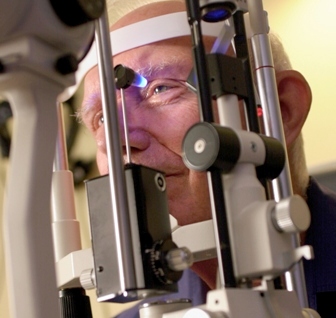Eye movement problems that result in difficulty reading are as common as vision loss in stroke patients, researchers at the University have found.
Visual problems can affect up to two thirds of stroke patients, but can sometimes go undetected if patients do not recognise them as an after-effect of the condition or if they are unable to communicate the problem to their medical team or families.
Research has often focused on visual field loss, caused by an interruption in the pathways that deliver an image from the eye to the brain for processing. A study led by scientists at Liverpool, however, has shown that damage to the nerve supply that controls eye movement is also a common problem after a stroke. Impaired eye movement can impact on the ability to follow a moving object or read words on a page.
Treatments include exercises to strengthen the eye muscles when looking at objects close to the face, as well as prisms that can be fitted to glasses to join double vision. The research highlights the need for developing stricter assessment methods to ensure vision problems are detected and appropriately identified as the after-effects of stroke as opposed to a symptom of old age.
Dr Fiona Rowe, from the Directorate of Orthoptics and Vision Science, said: “If a stroke patient has vision problems it can impact on the rest of their rehabilitation in a variety of ways, including reading difficulties and moving around properly. It is vital that health care services are aware of the different vision problems that stroke patients can face and have clear guidelines on identifying where the condition originates, whether it is in the eye, brain or the connecting pathways.
“Quite often patients do not connect difficulties with reading with the after-effects of stroke and so they can be missed. It is important, therefore, that health workers ask the right questions of the patient in order to understand whether the condition is as result of a stroke or if the problem existed prior to this. We hope this new research will increase awareness of vision problems in stroke patients and encourage those affected by the condition to consult medics with any difficulties they experience.”
